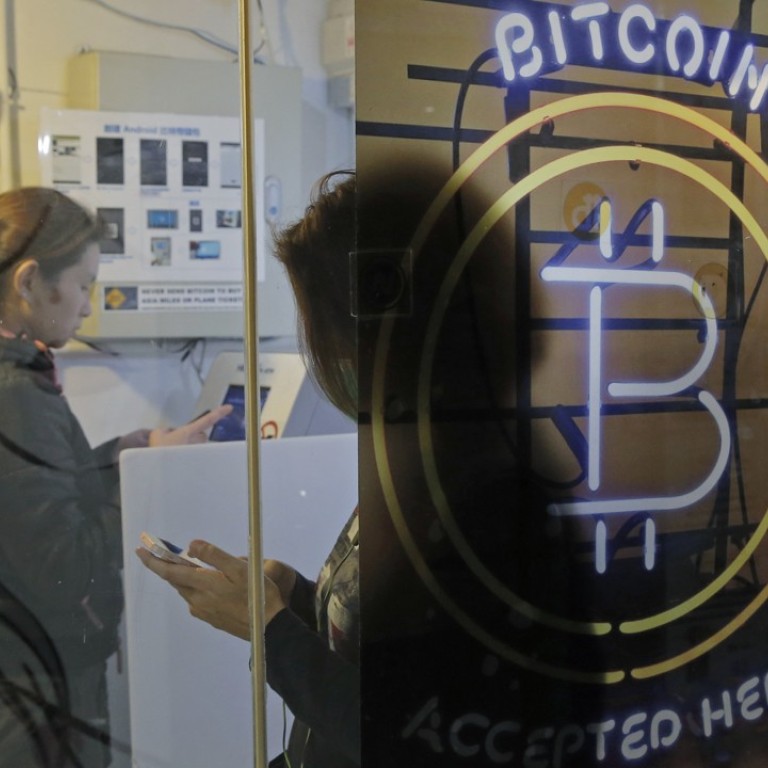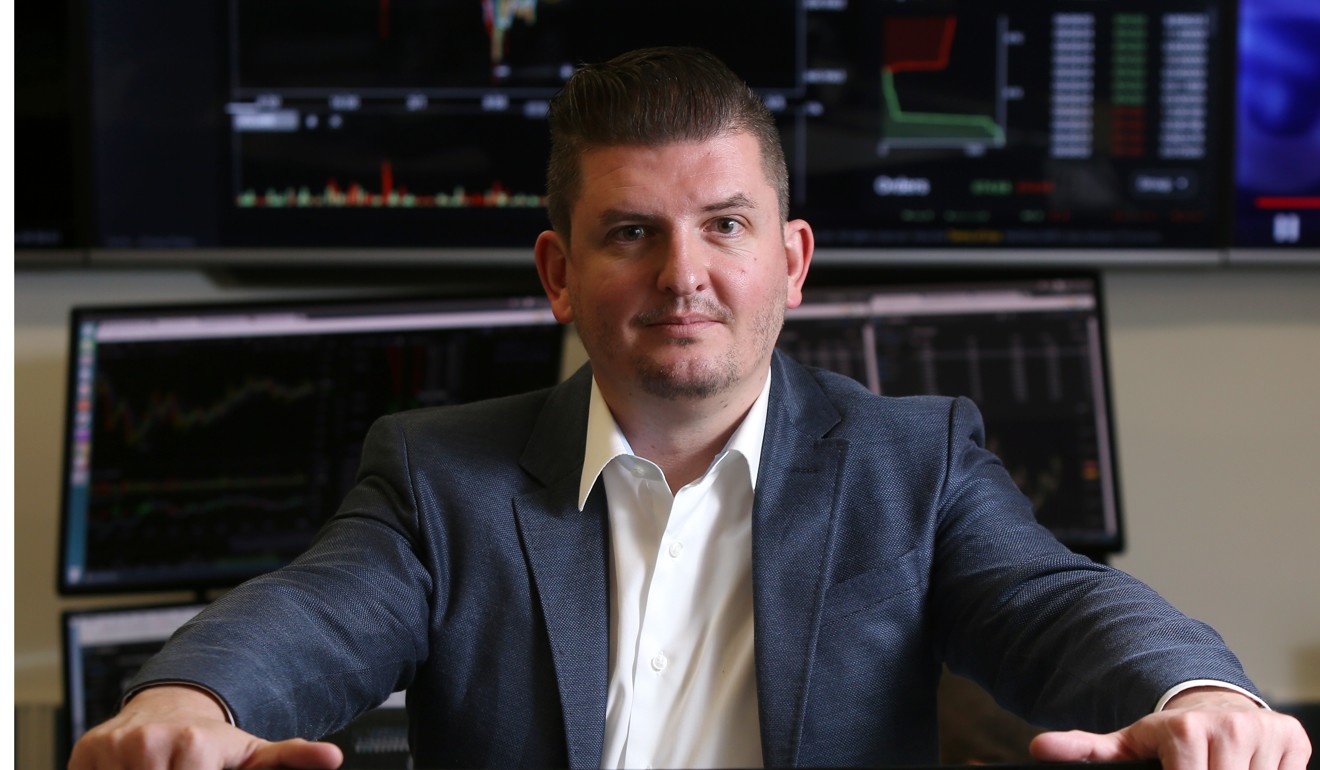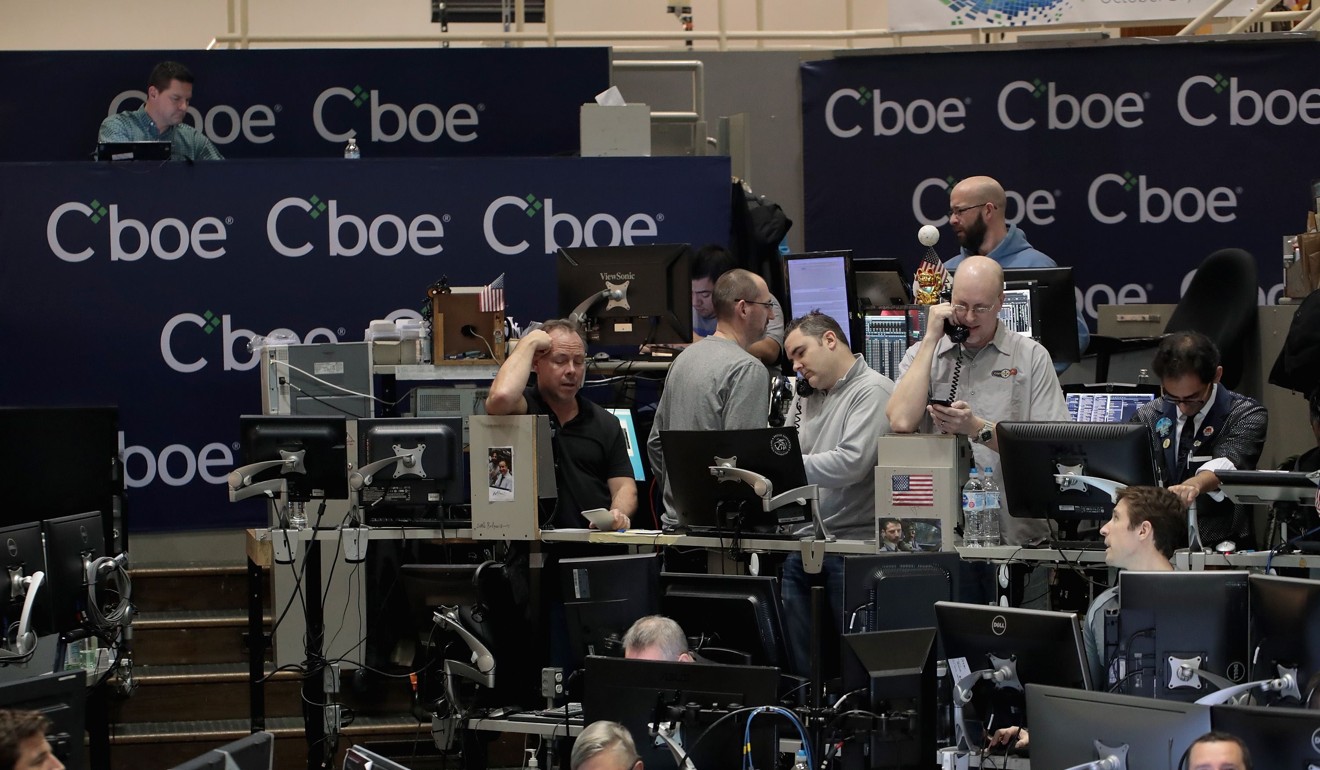
It’s time investors take stock, but bitcoin has a future, says crypto exchange founder
Dave Chapman says interest in cryptocurrencies is rising from institutions, including private banks, many of whom are acting on demand from their clients
The hype around cryptocurrencies may be breaking. ICOs – initial coin offerings – where tokens are offered up in support of blockchains, have increased dramatically. The extent of the hype is underlined by Taobao vendors offering ghostwriting services for ICO whitepapers, according to a recent South China Morning Post report.
Regulators have fired warning shots and sounded notes of encouragement to the cryptocurrency/ICO market. China banned ICOs, stating that some 90 per cent were fraudulent. Hong Kong’s Securities and Futures Commission recently halted the ICO of Black Cell Technology, whose token, KROPS, purports to create a single market for all farmers and consumers.
And yet, the People’s Bank of China – the mainland’s central bank – is reportedly interested in developing a sovereign cryptocurrency. Jurisdictions in Europe and Japan are keen to host cryptocurrency exchanges and business, and institutional interest is growing.
Dave Chapman, a Hong Kong-based cryptocurrency entrepreneur, says the vast majority of cryptocurrencies are junk – estimating that just 10 per cent of the 2,000 or so coins out there are worth investing in. That said, in Chapman’s view, you’d be crazy to ignore them. “Everyone says crypto is so bad, but there’s no difference between this and any other time when people have gone into something (new),” Chapman says. “Is it new? Yes. Does it need to mature? Yes. Will it be regulated? Yes.”

In 2013, Chapman and two associates, Hugh Madden and Ken Lo, founded ANX International, a blockchain solutions provider and ANXPRO, a cryptocurrency exchange. More recently, Chapman has added a new business to ANX’s portfolio, Octagon Strategy, a cryptocurrency brokerage aimed at institutions and ultra high net worth individuals and their family offices.
Business, he says, is good. In December, Octagon did US$1.5 billion in trades. The company is due to expand to new offices in Central with an additional 5,500 square feet of space.
Chapman describes himself as a “corporate refugee”, and like many cryptocurrency first movers, he is an evangelist for the technology, as much as he is a businessman. Born in 1980 in Brisbane, Australia, Chapman was engrossed in technology from a young age.
He went into investment banking, moving to London to pursue the high life. He wound up working on high frequency trading systems for Credit Suisse in London and later derivatives for HSBC when he moved to Hong Kong.
Disillusionment followed. “I went into finance with one view and came out of it with another view,” Chapman says, citing the constant failures, the number of people that had been hurt by exotic products, and the constant fines resulting from malpractice. “It broke my confidence a little bit, to see how it operates.”
Chapman was working at Bear Stearns during its collapse in the early days of the global financial crisis in 2007-8, and at HSBC in 2012 when the bank paid out nearly US$2 billion in a prosecution deal related to drug cartels and money laundering.
HSBC Hong Kong was Chapman’s last job in traditional finance.
He first became aware of bitcoin in 2012. By 2013, he believed in it enough to leave HSBC to start a bitcoin exchange with Lo and Madden. Like Chapman, both men were working corporate jobs at the intersection of finance and technology, and equally disillusioned with banking.
Chapman also found a sense of purpose with cryptocurrencies. “One of the really fascinating things that kept me coming back to bitcoin when I first saw it, is that there was no central authority. That means no one can stop it. A bank can’t stop it. A dictator can’t stop it. Parents can’t stop it.”
In terms of valuation and media attention, 2013 was a watershed year. In January, bitcoin was trading at around US$15, but by year’s end, it had risen to US$817, peaking in early December at US$945. That represents a price rise of 54 times, much higher than 2017’s rise of 19 times. Then in 2014, Mt Gox bitcoin exchange, the world’s biggest, collapsed, suppressing prices for the rest of the year.
Everyone says cryptocurrency is so bad, but there’s no difference between this and any other time when people have gone into something (new)
Chapman, Madden and Lo’s new venture was met with plenty of scepticism. “It surprised a lot of people – leaving a respected career to go and play with ‘magical internet money’. That’s how a lot of people viewed it,” says Chapman.
Times have changed, and Chapman says that the view of cryptocurrencies among bankers has turned from outright dismissal to fear of missing out.
That switch has generated two benefits for Octagon. First, recruiting is easier. In February, Octagon hired Wayne Trench, who had been executive director and head of electronic trading coverage for Morgan Stanley Asia, as CEO.
For Chapman, having a high-ranking executive from a big name like Morgan Stanley making the switch to a cryptocurrency business is a sign of the times, as much as a boost for Octagon.
Julia Pang, Octagon’s COO, was appointed in 2018 and came over from a managing directorship at Banco Santander.
Though Chapman admits that Octagon can’t pay a base salary as high as traditional banks, his team is looking at offering a stock option plan.

Dealing with bitcoin
Despite the large number of cryptocurrencies out there, bitcoin remains “the central reserve currency of crypto”, according to Chapman. Octagon Strategy currently trades seven cryptocurrencies, though Chapman reckons that number will climb to 40 or 50 by the end of the year, as his company looks at more ICOs coming on to the market.
Even though the price drop of bitcoin, from US$19,000 in mid-December 2017 to under US$7,000 by early February was spectacular and dented public interest, Chapman calls it a correction that’s “healthy, warranted and expected.”
Cryptocurrencies and ICOs have garnered plenty of public attention in recent months, and much of it unflattering. Often, the focus is on the scams. Chapman sees this as yet another clarion call to investors for proper due diligence, as with any investment.

He points to the CME Group and Chicago Board Options Exchange offering bitcoin futures (in December 2017), approved by the Commodity Futures Trading Commission as a positive sign, adding that 19 exchange-traded funds are waiting for approval from the US’ Securities and Exchange Commission. As of this writing, the SEC has yet to approve any such funds, citing security and investor protection concerns.
A new source of interest in cryptocurrency, and one of the reasons for setting up Octagon, was interest from private banks, many of whom, Chapman says, were acting on demand from their own clients. Hong Kong’s family offices are mostly in the exploratory phase at the moment, says Chapman, seeking some exposure but still waiting to see how things play out.
(The full version of this article is published in the April issue of The Peak magazine, available at selected bookstores)

